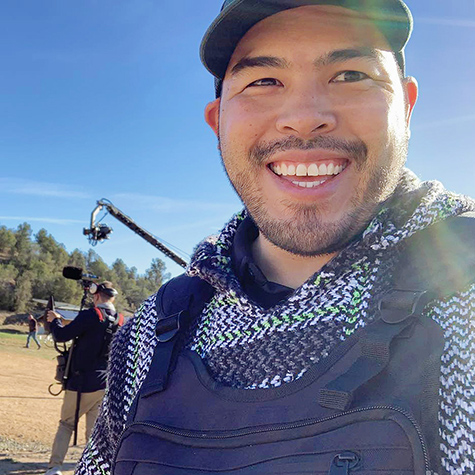The websites look good, appears professional, they sound good and they speak to your inner most desire of becoming successful – even famous. On the phone they make it seem so easy.
With just the right amount of Hollywood arrogance they leave no doubt that your success is only a monthly payment or headshot away. Once you start to rely on and even look forward to the listings on the site, you find you’ve got to pay, kinda a lot of money…
It really seems like you’ve found a path.
Problem is… you can spend a shit load of money, hundreds for monthly listings, five hundred or more for “professional” photographer head-shots, thousands can be spent on acting lessons and showcases. You get jazzed, but their ‘industry executives’ don’t take notice!!
Scams like this are extremely common. They’re sophisticated, and a lot of money and effort went into setting it up. It’s designed to play into all of your goals and desires, to capitalize on your good nature and dreams. We need way to identify what is a scam and what isn’t.
Luckily, it’s easy.
Basically if they ask you about for credits of films you’ve been in, and want to see a reel of your body of work… They’re legit.
If they ask for money up front they are more than likely a scam. If they use language that refers to being discovered or famous, they’re trying to appeal to you innermost desire and trying to get money out of you. Real agents and managers are business minded and they want talent that is as well. They want you to make money so that they can make money. Real ones don’t ask for money up front.
Another way to tell if they are a scam is if they advertise. Legitimate managers and agents receive a barrage of resumes. They don’t need to advertise. If you have no training and/or very few credits, it’s unlikely a legit agent/manager will take you on.
If you do find yourself falling victim to the marketing blitz’s of the acting scam artists keep a handy dosage of reality in your pocket to smack yourself across the face with. They DO NOT have casting directors lining up to see your profile or the profiles of thousands of people with little to no acting credit or training. If it doesn’t make sense to you, then know you’re not missing out on anything!
One final good check: ARE THEY ON IMDB? If so, they may be legit. If not, they aren’t working in the casting business.
As usual the critical message here is to get on set and start talking to people on set, especially working actors. Professionals will have heard about different agencies and could recommend you if they’ve seen any of your work.
So, who are the real talent agents and talent managers? What exactly do they do?
Let’s start with the managers. Like their name implies they are responsible for managing your career development. Whether its training, networking, marketing, or personal coaching they will make sure that your career keeps its forward momentum. They would rather steer you towards a low budget masterpiece that will get you limelighted than a full paying career wrecker of sequel number 5.
Anyone who can legally enter into a contract can be your manager. But when you’re just starting out it might be better to manage yourself.
A manager and agent will probably find you– when you’re ready. When you’re on set, asking working actors about this. For ow, concentrate on creating a body of work. Here’s a great website of someone who has done that very well: benwhitehair.com
The Talent Managers Association is a self governing group that seeks to maintain a high level of ethics and standard compensation. Effective managers only handle a few talent at a time. This makes sense: they can’t be focused on you if they’re overseeing 20 or 30 others, much less hundreds. A legit talent manager will be choosy and you will fill a part of his/her portfolio… which is a funny way to say it, but it gets the point across.
To them, their clients are assets. They want talent they can develop and make money with. They will value you.
Talent agents serve an entirely different role than a manager. They are the ones who’ll scan the breakdowns and submit you for the roles they think you have a good chance of possibly landing. Then you’ll audition for the role. If you don’t perform well in the audition or turn off the casting people (late, unprepared, rude), you may embarrass your agent and not get sent out much more. You’ve got to perform at a high level.
Agents also operate as the buffer between you and production. It’s the agent who will step in when production ask you to do something you didn’t sign up for. The agent will negotiate your salary and act as the bad cop so you can distance yourself from any hard feelings or problems that might arise.
Legitimate agents have a large network of contacts. They also have access to casting breakdowns that are restricted to all but a few.
Agents get paid when you do. That means that you have to nail the audition, make it through the call-back, get past first call, and ultimately get the part. It’s important to understand that the agent is not only working for you but they are also working for the casting agencies.
If they keep sending duds to the auditions, they can hurt their reputation. They have to send winners. If you don’t land the jobs, you don’t get paid, the agent doesn’t get paid, and the agency they work for doesn’t get paid. If the agent fails to bring money into the agency, they’ll bring in a new agent.
You can see why people say it’s hard to get an agent. Agents can only afford to represent people who consistently book roles. it’s the only way they get paid.
I’ve listed some of the Acting Agencies at the bottom for actors with credits. You can also go to the Talent Manager link above for a link to the Actors Talent Association (ATA).
If you are new to acting you may want to concentrate on developing your style and talent first before contacting an agent. In addition to actor training you need to develop connections in the industry.
This will get you access not only to roles you wouldn’t ordinarily be aware of, but also to sets you wouldn’t necessarily be on. Here you can watch the more seasoned actors perform and develop the nuances of their character under the directors guidance.
Before you sign any contract, have an agent or an experienced actor read it. If someone is forcing you to sign without having a neutral party review it, just walk away.
Tamara, who has been very successful in both production and acting, has some great points about all this. In short, don’t worry if you make some errors here but obviously limiting the fallout is key:
In addition to learning to act, which is a life long process BTW, you’ll need to learn how to create an acting resume, audition for parts, marketing yourself which includes submissions and follow-ups. Acting IS a business.
Here’s a great piece of advice I’ve heard over and over from professional actors: Develop a network of seasoned actors within your area. Practice, get inspired, and learn from one another. They need to be at or above your level.
Agents, managers, great roles, inspiration, ideas – all can come from this group. I know one group that created a web series, and their idea is being picked up by NBC. When you surround yourself with smart people, that kind of stuff happens.
Yes, it’s a lot of work, a lot to know. But you’ll learn it in time. With the right attitude, you’ll attract people who will help you. There’s a lot of people who will help you, you’ll see. The more involved you are, in the real film industry, the more you’ll just know.


